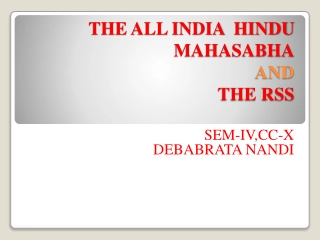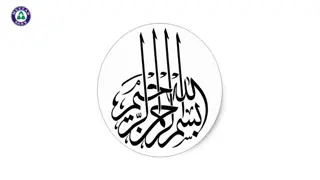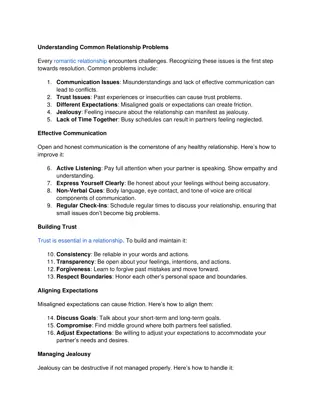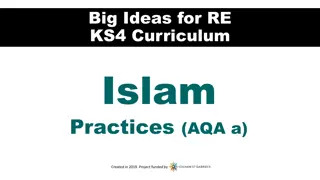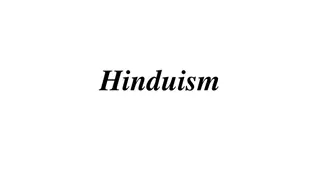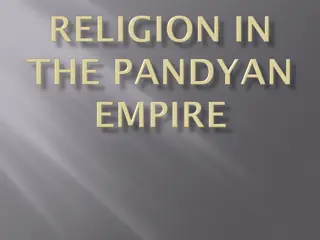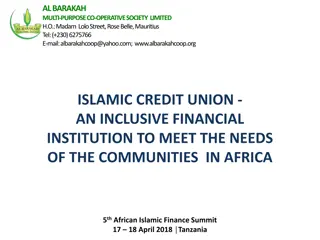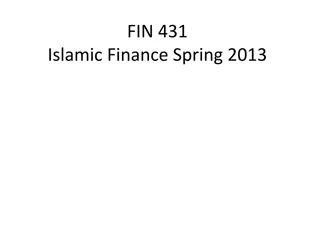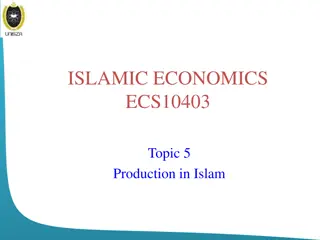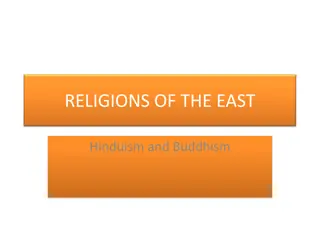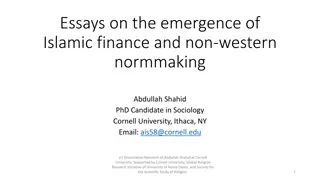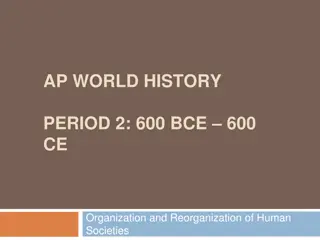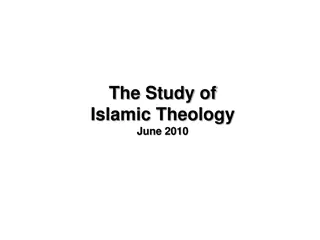Exploring Sikhism, Hinduism, and Islamic History through Lala Daulat Rai's Insights
Delve into the rich history of Sikhism, Hinduism, and Islamic invasions as portrayed in Lala Daulat Rai's writings. Discover the reasons behind his book, his perspectives on historical events and religious beliefs, and the challenges faced by these communities. Gain valuable insights into the diverse cultural and social landscapes of these religions.
Download Presentation

Please find below an Image/Link to download the presentation.
The content on the website is provided AS IS for your information and personal use only. It may not be sold, licensed, or shared on other websites without obtaining consent from the author. Download presentation by click this link. If you encounter any issues during the download, it is possible that the publisher has removed the file from their server.
E N D
Presentation Transcript
Sikhi Book Club Welcome sikhibookclub@gmail.com www.sikhibookclub.com
Ground Rules 1. Punctual attendance 2. The whole book/article of the month must be read 3. Come with an open mind 4. Share your learning and listen to others 5. Keep the discussion relevant 6. Respect each others confidentiality
Lala Daulat Rai and his reasons for writing the book Two factors prompted him to write book No comprehesive book regarding the mission of Guru Gobind Singh Overzealous devotees Majority of people know so little about this great hero Selfish ends Khalsa Sikhs? Poorly informed/ignorant of their Guru's real views Delving into the Guru's personal writings Dispel the myth of an ordinary reformer
Islamic Invasion Under Muslim rule for 350 years Muslims tempted to invade due to disunity: Political, social and religious considerations Missing concept of nationalism Came to own Hindus as a man owns cattle Holy duty to to detroy the temples, along with idols, bring them under the banner of islam Bare necessaties only/Jazia/Doors+lavatories cannot be towards west Can't ride a horse/wear a white turban Obliterate the word victory + its concept from Hindu psyche Chess player/Wrestler
Plight of the Hindus Modes of worship different and often at war with one another Ease-loving-pleasure seekers Stuck in swamp of manworship and polytheism Caste system Introducted by Brahmins to keep in power and plenty Their Gurudom came to stay and cannot be shaken off even today Large numbers of the two lower castes embraced Islam Under duress/Willingly to escape the stigma of slavery and untouchability Good riddance /Rotten Limb Neoconverts more zealous than invading muslims Sayyads?
Records Limited Hindu records Never had the inclination or genius to write their history Relentless spate of death and devastation never allowed them to gather their wits to pen such things Too stunned to keep note of such unending tales of misery/woe Muslim records Record glorious times of Mulim rule Grand deeds of death and devastation of the kaffirs as proof of Muslim might
Aurangzeb Previous muslim rulers prompted by holy considerations in all their acts of cruelty Obliterate the last traces of Hinduism Weighing heaps of scared thread All great Hindu kingdoms had vanished Rajput kings offered their daughters to the Muslim rulers No strong central power Not a month passed without a battle on the soil of India Rajputs and Kashatris had lost their valour which was confined to old stories alone Recognised that conversion of the high caste Hindus was key Free use of coercion, terror and violence Spent huge sums
Birth and Early Life Makes reference to miracles occurring at birth ? factual or not As a child he divided his friends into groups in mock battles Not a perfect child - naughtiness when he took aim at women s pitchers, insolence to Nawab Fearless Guru Teghbahadur made arrangements for Gobind to study Persian and be instructured in warfare/horseriding Proved a great boon Gobind spontaneously quipped Makes it seem like it was a spur of the moment comment rather than a calculated decision
Difficulites the Guru Faced We consider Guru Harkrishan as the only child Guru but Guru Gobind Singh was nine Guru Gobind Singh did not have anything to gain by animosity against Mughals Against Muslims in name only Lone fakir vs the Islamic empire Novice vs crafty and powerful potentate Kith and Kin hostile to him owing to his succession to Guruship Country-men lacking in everything Endowed with a heart which scoffed at all troubles Not taken birth for thousands of year Comparision made with Raam, Krishna, Mohammed, Shankaracharya Personal revenge vs The Good of All He retired to the hills to study first/nurse the spark of nationalism into a blaze Arabic, Sanskrit, chronciles of great kings/warriors, ballads, hunting, art of weapons
Religious Reform Interesting commentary on the diversity of the Hindu faith Differences and contrasts order of the day Liberation was going cheap and selling for a song Religious dealings Professional in the religious field Study of Vedas and Shastras limited only to Brahmins - Birth and Divine right Appease God through offerings Flowers, Coconut, Patashas Wash away sins of thousands of previous births Tirath, Mantras, Fasting Physical torture/Animal-Human sacrifice Religious Garbs/Dress Drugs/Alcohol/Eating Filth When absolution so cheap why should man bother about mortality, engage in the hard worship and prayers and study of the scriptures? Why cleanse the inner self? Why think about social welfare or unity or turn to one God?
The writings of Guru Gobind Singh Sent to preach Truth, Piety, Love and Justice Propogate the true religion of Akaal Those who were sent for showing the Highway, misled the people by making their own bye-ways Reduced him to him to dependence on others The Guru did not mince his words Crystal clear message needs no clarification Lowly servant of the Lord Finest example of humility and selfless service set by any religious preceptor Message went home because he taught the people in the language of the common man Evil effects of education being denied to the Hindus Build a nation over which the Brahmins could not make a dent
Social reform No nation/religion can progress if it is bound down by many restrictions Mental slavery Change to way of life risked danger of losing your caste Religion had been reduced to a narrow code of eating and drinking taboos Can't intermarry Can't eat the food cooked by others Untouchability Led to mutual hatred Watched their neighbour's downfall with glee Manu-code Ancient law maker Shudras - original inhabitants of the land Treated at par with cattle and beasts of burden. Worse of than ancient slaves and even under Muslim oppression. No amount of wealth or personal status could raise a Shudra to a higher caste
Theory to Practise Were the people/area chosen? Took Sikhs on hunts Made them hardy and hard-working Interest in execution of difficult tasks Change of offerings to weapons and horses Acquisation of weapons Evoking the martial spirit of the Sikhs A royal court Contests of martial skill and handling of weapons Elephant/kettle-drum Stirring poems + devotional hymns 52 court poets Wars of goddess Durga/Naina Devi Made use of available resources; no need to invent a new hero
The First Battle Gives shelter to Afghan sardars No Raja or Nawab bold enough to offer it Hill Rajas launch attack on Guru Sahib Pir Buddu Shah Lost one son in battle Honoured by the Guru 500 Udasi Sadhus decamp Cook remains Guru Sahib learns a lesson? Need for his own men, virile and dedicated fighters united in a holy bond Construction of five forts around Anandpur Sahib Helps Hill Rajas in battle against Alif Khan
The Birth of the Khalsa Imbued with devotion to Akaal An order to demolish the existing barriers of caste and creed Ideal of self-sacrifice Punj Pyaare At the mere bidding of the Guru - they offered their life and body to him High castes walk out. Hill Rajas invited but declined. Khalsa mainly made up of low castes/Shudras Two reasons offered: A test Only people like the Punj Pyaare could successfully undertake difficult taks for their Dharma and country. Thought of self sacrifice Inspiration Basic Tennets Defend their dharma (Hindu) and country when endangered? Gain proficiency of use of weapons
Prelude/Battle of Chamkaur Sahib The Guru was not deceitful live Shivaji Diplomacy/deceit are the heart and soul of warfare ?Accepted the promise made on the koran/scared cow Led from the front in battle Unparalleled odds/courage/sacrifice Comparision to Rustam, Napolean, Ram Chander Scornfully leaves
The tale of Sirhand India's proud children These are your true begotten sons These sons cause you endless pain and greatly torture your mind Guru Gobind Singh has taken your lowly son, the Shudra to defend you Gangu Ram, a Brahmin Filled with greed Wife remonstrated with him Despicable crime - but for a Brahmin it was nothing extraordinary Blood sucking leech Entire history of India is filled with such examples Kashatri Sucha Nand Counsels the killing of the younger Sahibzade Compare them with fully grown men who bid goodbye to their religion Childen who signed with their blood the immortal document of love of their father
Bahadhur Shah and Baba Banda Singh Ji Bahadhur Bahadhur Shah Khalsa take part in the battle against Azeem Shah The Guru was responsible for Bahadhur Shah's victory Guru's arrow pierces Azeem Shah Refused to take part in war against Marathas Baba Banda Singh Ji Bahadhur Did not adminster amrit? Refuted by many historians Neither elation nor satisfaction over destruction of Sirhand Calmness and contentment Abchal Nagar - Mandir?
The qualities of Guru Gobind Singh Ji Placement of a bar Maintanence of purity over the last 300 years Saved Sikhs from degeneration, dissensions and divisions Selflessly sacrificed everything Buddha, Bhishma Surpassed Krishna, Ram Chandra and Shankara in working wanders for the nation Steadfast No situation was hopeless for him Electrifying presence Went wherever it was needed most Excellent generals very rarely are excellent fighters Hardy and industrious Never in haste Great lover in mankind/believer in the brotherhood of men Loved by muslims


